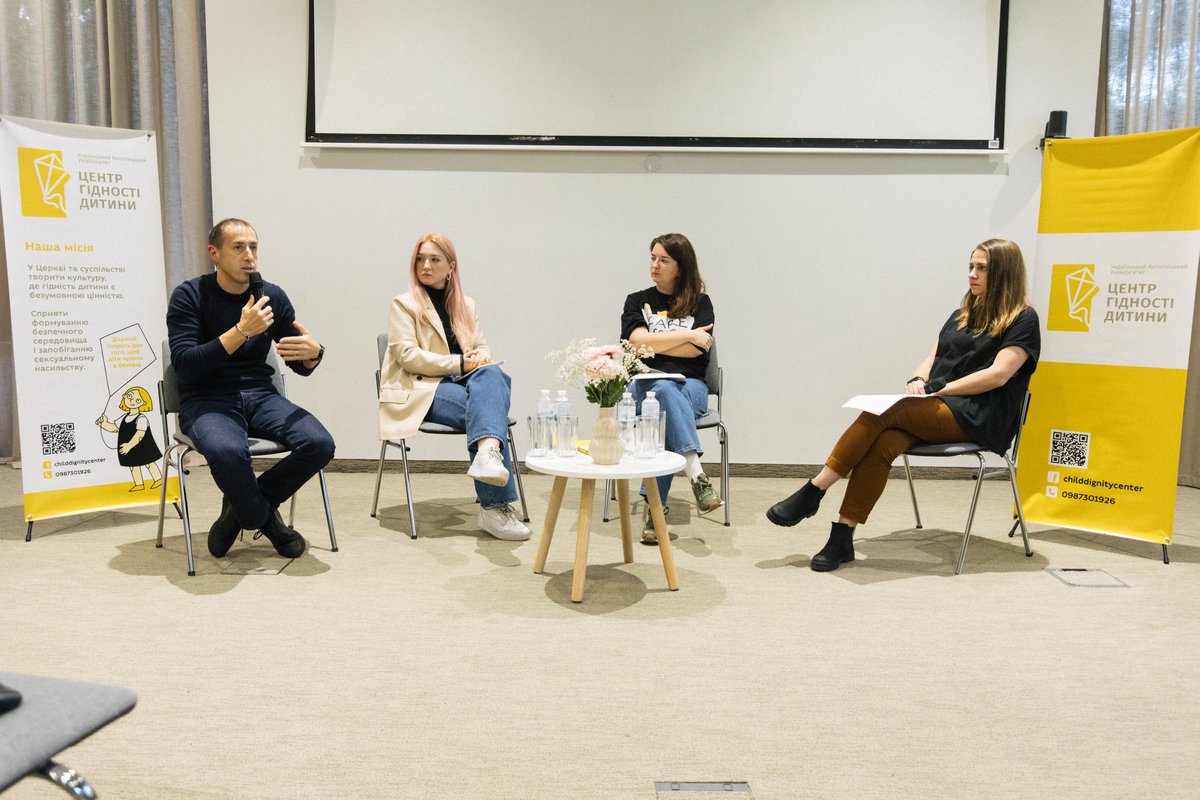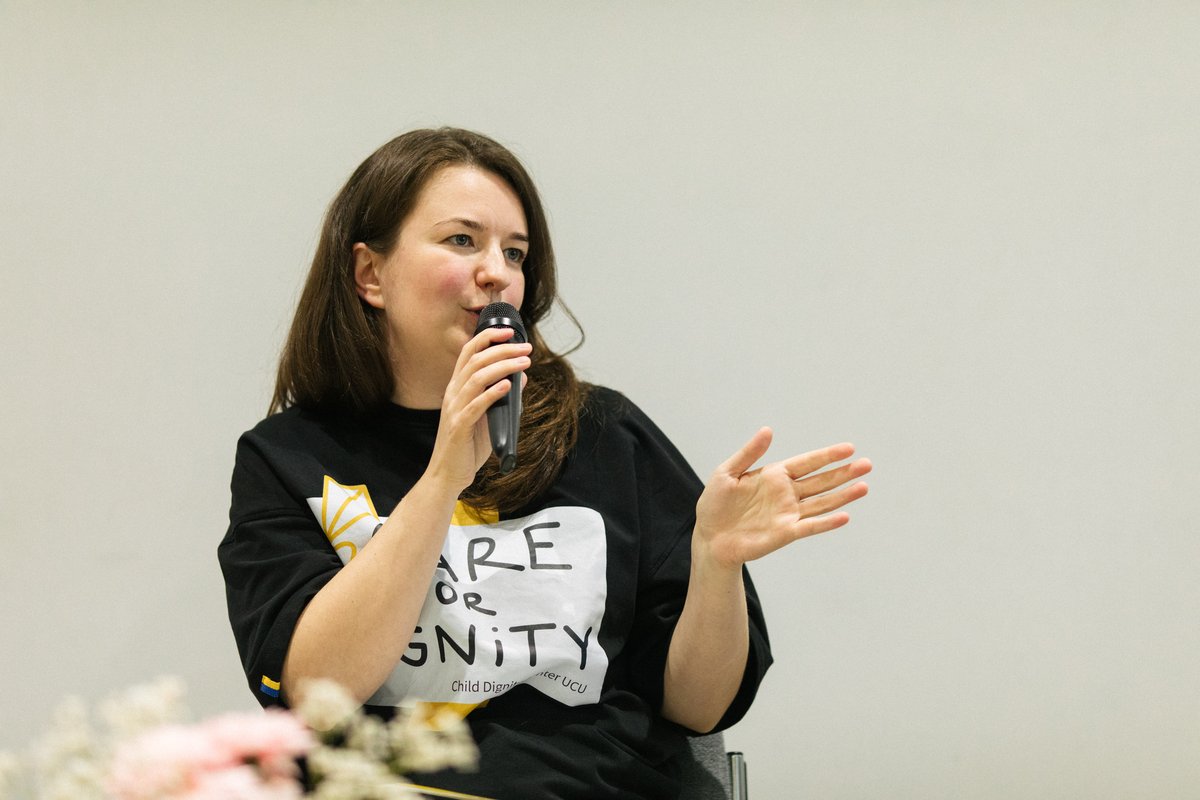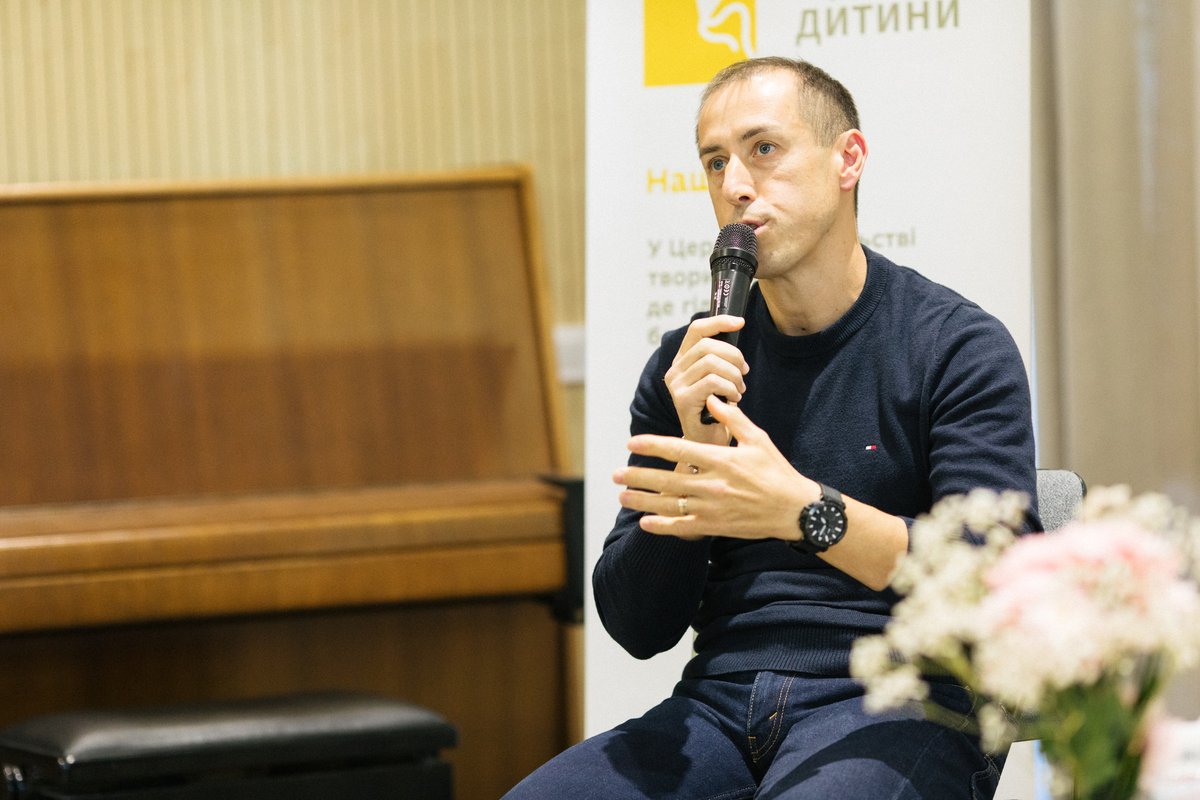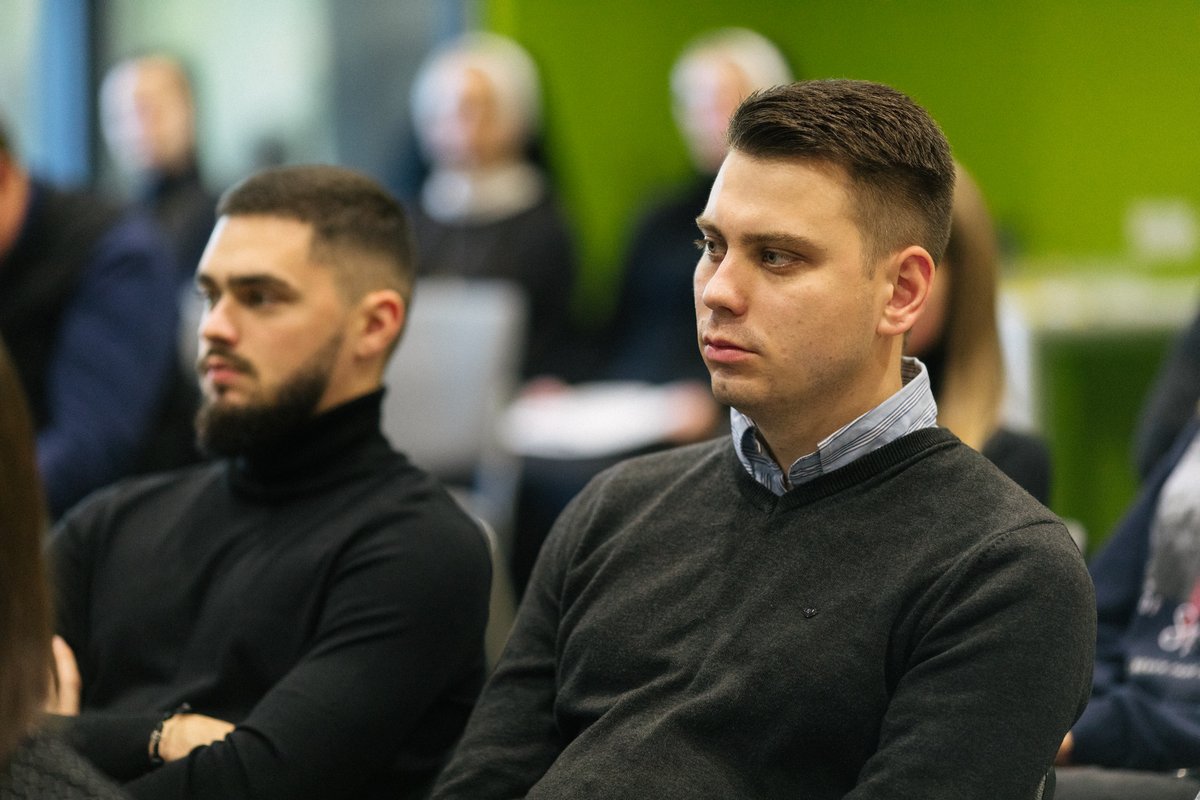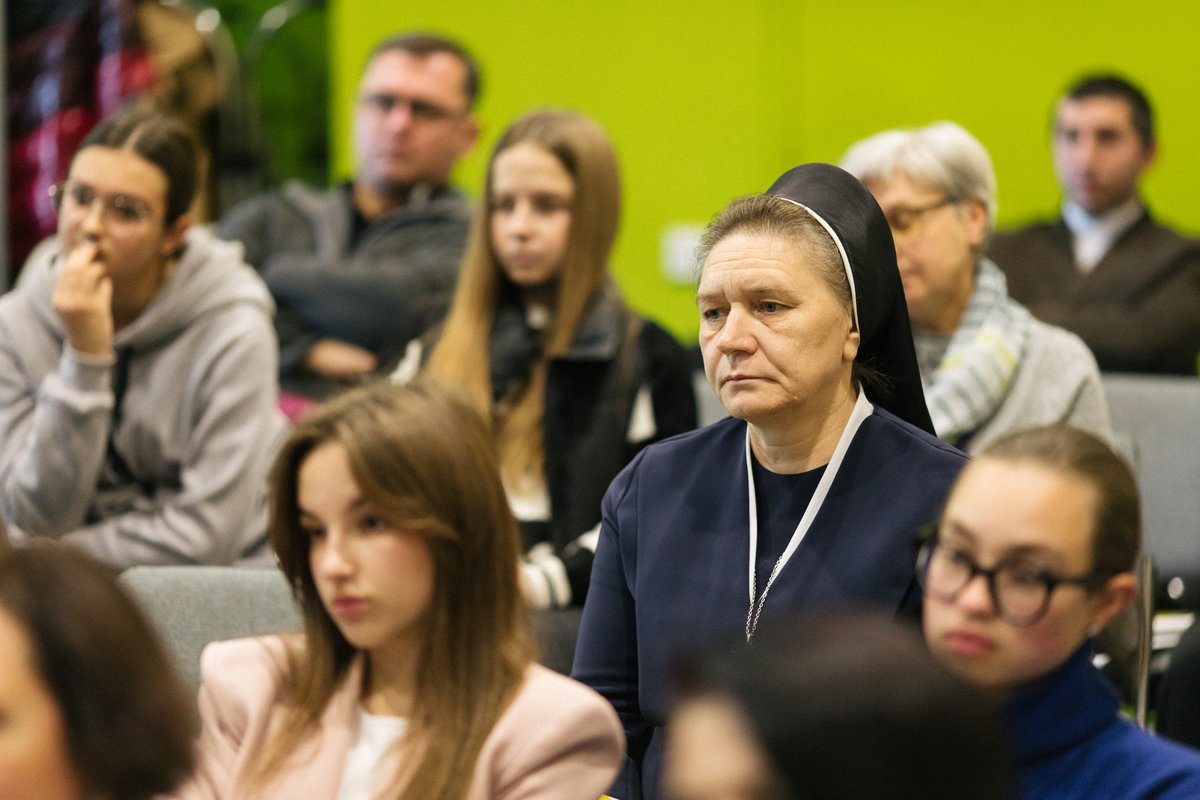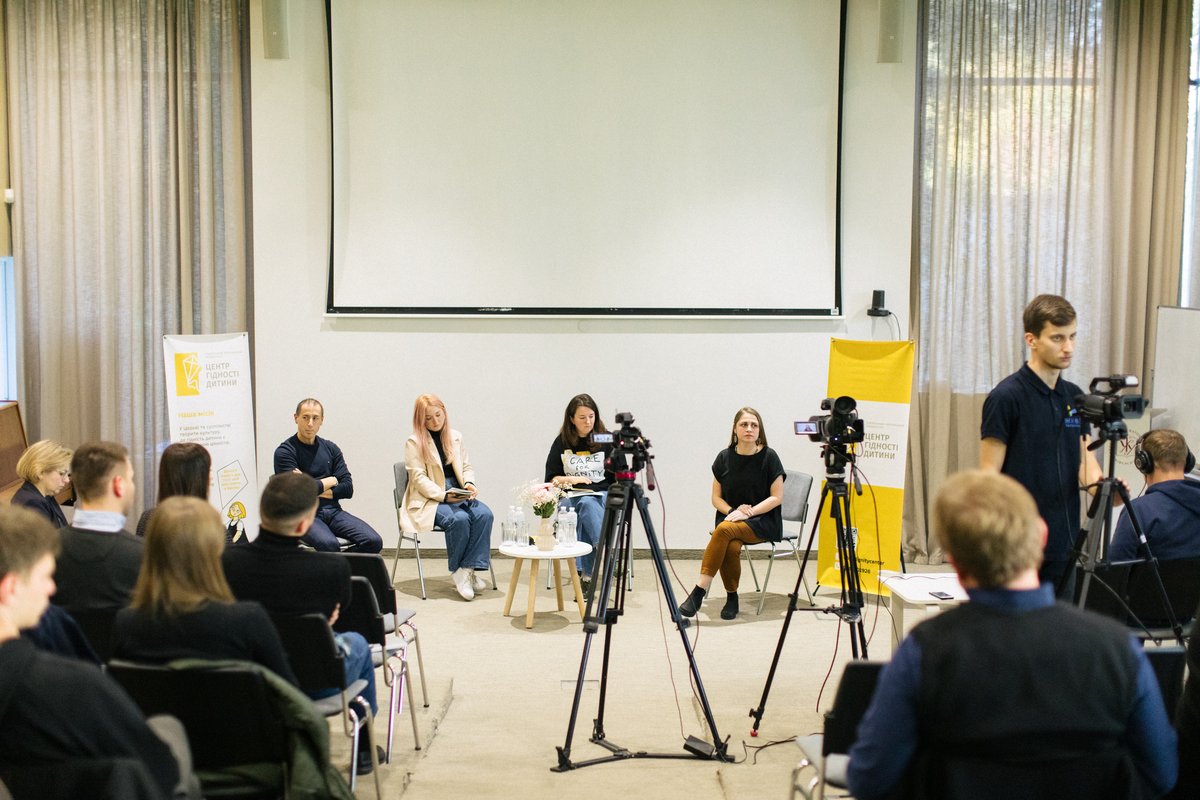UCU Center for the Dignity of the Child Presents Instruction for Child Safety in Church
The UCU Center for Child Dignity developed the manual in cooperation with Ptashenya. Children's Space". The manual explains how to help a child define his or her own boundaries and defend them in an ecological way, and how to behave when faced with violence. The proposed lessons are designed for the church environment, but will be useful for anyone who works with children.
Presentation of the manual on violence prevention "Safety Briefings for Children" | 16.10.2023
"Minimize evil, minimize violence, expand your awareness of how to talk to children about violence. And good practices and developments, such as the Safety Briefings for Children manual, should be disseminated and scaled up," said
Svitlana Kohut, Dean of the UCU Faculty of Health Sciences, speaking about the responsibility of adults in creating an environment in which children can safely develop and grow during the presentation of the manual "Safety Instructions for Children" on October 16 at the Sheptytsky Center of the Ukrainian Catholic University. The presentation brought together a wide range of stakeholders from the church, academia, NGOs, and students.
Khrystyna Shabat, head of UCU's Center for the Dignity of the Child, outlined the values that guided the team in creating the manuals: "The purpose of the manual is to help an adult explain safety to children of different ages. We wanted it to be a practical guide, so that everyone who wants to, but doesn't know how, who is shy or doesn't know how to find the right words in a conversation about violence with a child, has a tool to do it effectively."
The relevance of the briefings is based on the results of a study by the Center for Child Dignity and the Fama research agency "Sexual Violence in Ukraine" (2021), which showed that:
- 23% of Ukrainians experienced sexual violence and harassment in childhood;
- 43% of victims did not tell anyone about what happened;
- 62% of Ukrainians believe that sexual violence is committed by strangers, but in fact, in 85% of cases, children are abused by adult acquaintances.
Given these figures, we desperately need violence prevention, materials that teach how to prevent it, how to identify potentially dangerous behavior and perpetrators of violence, how to confront them, algorithms for where to turn and what to do when we are entrusted with a story about our experiences, that is, how to create a culture of safety in society.
Anastasia Luzhetska, author of the instructional materials, educator, and co-author of the curriculum at Ptashenya. Children's Space, shared the story of the manual's creation and methodological findings: "The value of the manual is that it contains tasks for children from 4 to 18 years old under one cover. Because explaining the same topic to a child of six and twelve years old is different. You need to take into account the level of development and prior knowledge on the topic. Our collection will help with this. Through the lessons, we want to teach children about their own boundaries and the boundaries of other people, how not to cross them and not to allow their own to be violated."
The manuals contain lessons that will help psychologists, educators, teachers in church kindergartens and schools, catechists, clergy working with children, community leaders, and lecturers working with minors in the church environment to communicate in a clear language with children of different age groups: 4-6, 7-10, 11-14, and 15-18 years old, about complex things through games, activities, and interactive materials.
Father Petro Maiba, chairman of the UGCC Education and Upbringing Commission, noted the practical value of the collection: "If you have knowledge, you know how to act. That is why it is so important to talk to children about violence, although it is not an easy topic. We shouldn't hide from the problems, we should teach and talk, give knowledge. And it shouldn't be formal, but in clear, accessible words. We tell the children how to act clearly when conducting the lessons in the manual."
Ivanna Kotovych, a catechist and teacher of literature and Christian ethics from Dolyna, Ivano-Frankivsk Oblast, is ready to use the manual in her work with minors immediately after the presentation: "It is important to have a guide to talk to children about violence, to teach them how to take care of their safety. I want to have a mechanism for proper response. With the help of the collection, I want to be able to place the right emphasis in conversations about safety, to help teenagers not to be hurt, and I want to assure them that I am on their side, that I can help and recommend other specialists who can help."
The next stage of disseminating useful instructional practices will be the implementation of training in 3 UGCC parishes and 3 schools with further research on the impact on the educational environment. This was made possible thanks to the support of the Foundation for Change, which contributed to the publication of the manual in print and the implementation of the practices.
Live television broadcasted the presentation of the briefings live. It can be viewed here: https://www.youtube.com/live/gVOmuLvKbLs?feature=share
You can download "Briefings for Child Safety" for free on the website of the UCU Center for Child Dignity: https://cdc.ucu.edu.ua/uk/resources/posibnik-instruktazhi-dlya-bezpeki-ditej/?fbclid=IwAR3H0rjTieTWd0Xii4CIMee51umjSkrBeIk7ZBeYb3fHKKcux9NDL18O1TE
